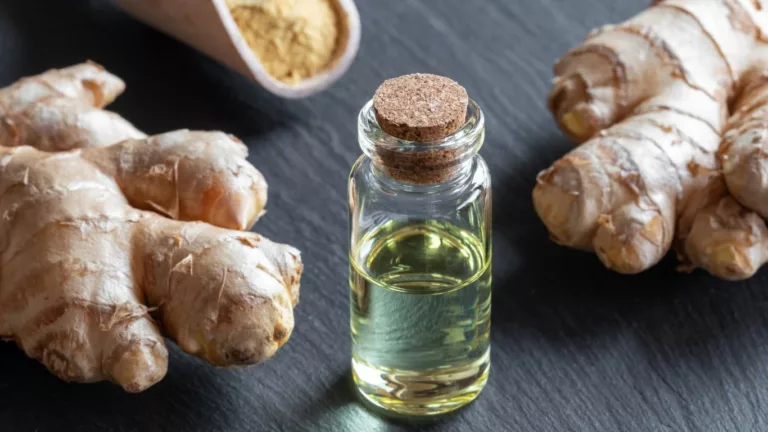How Oxidative Stress Impacts High Blood Pressure & Heart Health
As someone who has spent years helping individuals manage high blood pressure, I’ve seen firsthand how little attention is often paid to the underlying processes that contribute to hypertension. One of the key players in this whole equation that many people overlook is oxidative stress.
You’ve probably heard of it, but how does it really relate to high blood pressure? Well, in my experience, it’s not just about stress in the emotional sense. Oxidative stress refers to an imbalance between free radicals and antioxidants in your body—and when that imbalance shifts too far, it can have significant impacts on your heart health. In this post, I’m going to walk you through how oxidative stress contributes to high blood pressure, why it matters, and what you can do to manage it.
Understanding High Blood Pressure and Oxidative Stress

When it comes to high blood pressure (or hypertension), most people think of it as simply elevated pressure in the arteries, but there’s so much more happening beneath the surface. High blood pressure can result from a combination of factors like lifestyle habits, genetics, and even environmental stress. But one often overlooked contributor is oxidative stress. Now, if you’re wondering what exactly that is, don’t worry—I’ll break it down for you.
In simple terms, oxidative stress happens when there are more free radicals (unstable molecules) in your body than there are antioxidants to neutralize them. Free radicals are produced naturally during metabolism, but they can also be introduced by external factors like pollution, smoking, poor diet, and lack of exercise. When free radicals accumulate, they start to damage cells, proteins, and even DNA, leading to a cascade of issues—one of which is hypertension.
The Role of Oxidative Stress in Blood Vessel Health

One of the key ways oxidative stress affects high blood pressure is through its impact on blood vessels. The lining of your blood vessels, known as the endothelium, plays a huge role in regulating blood pressure. In a healthy system, the endothelium helps blood vessels relax and dilate, allowing blood to flow easily and pressure to remain stable.
However, when oxidative stress sets in, it damages the endothelial cells. This damage makes it harder for the vessels to dilate properly, which in turn raises the resistance the heart has to pump against. Over time, this can lead to sustained high blood pressure, which increases the risk of heart disease and stroke. It’s like your blood vessels are no longer able to do their job of keeping blood flowing smoothly, and the heart has to work harder to make up for it.
How Does Oxidative Stress Actually Raise Blood Pressure?
- Increased Inflammation: Oxidative stress triggers inflammation in the blood vessels, which makes them stiffer and less flexible. Stiffened arteries cannot expand and contract as easily, raising blood pressure.
- Impaired Nitric Oxide Production: Nitric oxide is a molecule that helps blood vessels relax. Free radicals damage the cells responsible for producing nitric oxide, leading to less dilation and higher blood pressure.
- Activation of Angiotensin II: Oxidative stress can stimulate the production of angiotensin II, a hormone that constricts blood vessels and increases blood pressure. It’s like a vicious cycle that keeps the pressure high.
It’s pretty clear that oxidative stress and high blood pressure are linked in a pretty nasty way, but the good news is that there are steps you can take to reduce the impact of oxidative stress on your body. And I’m not just talking about popping pills to manage symptoms. Let’s dive into how you can make lifestyle changes to lower oxidative stress and, in turn, help manage your blood pressure.
Ways to Manage Oxidative Stress and High Blood Pressure

1. Adopt a Diet Rich in Antioxidants
One of the best ways to fight oxidative stress is by increasing your intake of antioxidants. These are the compounds that neutralize free radicals and prevent cellular damage. Foods like berries, leafy greens, nuts, and seeds are packed with antioxidants that can help protect your blood vessels and reduce inflammation.
Tip: The Mediterranean diet, which is full of fresh vegetables, whole grains, healthy fats (like olive oil), and lean proteins, has been shown to reduce oxidative stress and improve heart health. I’ve seen patients make drastic improvements by shifting to this kind of eating plan, not to mention it’s super tasty!
2. Get Active
Exercise isn’t just for weight loss—it’s also a powerful tool for fighting oxidative stress. Regular physical activity boosts your body’s natural antioxidant defenses and helps maintain healthy blood pressure. Even moderate activities like walking or swimming can make a big difference.
Tip: Aim for at least 30 minutes of moderate-intensity exercise most days of the week. It doesn’t have to be anything extreme, but moving your body consistently is key to keeping both oxidative stress and blood pressure in check.
3. Manage Stress
While we’re focusing on oxidative stress in the physiological sense, emotional stress can also contribute to the problem. High levels of chronic stress can lead to increased oxidative damage in your body and elevate blood pressure. Managing stress through techniques like meditation, yoga, or deep breathing can go a long way in keeping both your mind and body in balance.
Tip: I recommend starting with simple deep-breathing exercises—inhale for 4 counts, hold for 4, and exhale for 4. It’s a quick and effective way to calm your nervous system and reduce stress-induced oxidative damage.
4. Avoid Smoking and Limit Alcohol Consumption
Smoking and excessive alcohol intake are major contributors to oxidative stress and high blood pressure. If you’re looking to manage both, quitting smoking and reducing alcohol intake is essential. The toxins in cigarette smoke and the byproducts of alcohol metabolism increase oxidative stress in your body, contributing to both vascular damage and hypertension.
Tip: If you’re struggling with quitting smoking or cutting back on alcohol, seek support from a healthcare provider or a support group. There are also plenty of resources available to help with lifestyle changes like this.
5. Sleep Well
Don’t underestimate the power of a good night’s sleep! Chronic sleep deprivation can increase oxidative stress and worsen high blood pressure. Aim for 7-9 hours of quality sleep each night to give your body time to repair itself and maintain a healthy balance.
Tip: Try to stick to a regular sleep schedule, limit caffeine late in the day, and create a relaxing bedtime routine to improve your sleep quality.
By incorporating these strategies into your daily routine, you can reduce the impact of oxidative stress on your body and help manage your blood pressure. But it’s not just about tackling one thing at a time—it’s about creating a holistic approach to health that includes a balanced diet, regular activity, stress management, and good sleep hygiene. Trust me, taking small steps today can lead to big changes in your heart health tomorrow.
The Link Between High Blood Pressure and Inflammation

If you’ve ever heard the term “silent killer” in relation to hypertension, it’s because high blood pressure usually doesn’t show obvious symptoms until it’s too late. But the hidden culprit behind many of these “silent” issues can be inflammation, often triggered by oxidative stress. This inflammation, in turn, becomes a key factor in elevating blood pressure. It’s a bit of a domino effect, and in my experience, understanding this chain reaction can give you more control over your health.
Inflammation is your body’s natural response to injury or harmful invaders like bacteria and viruses. But in the case of oxidative stress, inflammation becomes chronic—like your body is on high alert, even when there’s no immediate threat. This constant, low-grade inflammation damages the blood vessels and heart, eventually leading to higher blood pressure. It’s like leaving a leaky faucet running in your kitchen for months—eventually, things will start to break down.
How Inflammation Drives Blood Pressure Up
Inflammation can damage the walls of your blood vessels, making them less flexible and more prone to constriction. This results in an increase in vascular resistance, meaning the heart has to work harder to pump blood through narrowed arteries. Over time, this causes sustained high blood pressure. In addition, chronic inflammation can increase the production of substances like angiotensin II, which constrict blood vessels, further exacerbating the problem.
And here’s the kicker: oxidative stress and inflammation often go hand-in-hand. The free radicals produced during oxidative stress can activate inflammatory pathways, creating a vicious cycle. This is why managing oxidative stress is such an essential part of controlling blood pressure. The less inflammation, the easier it is for your blood vessels to function properly, and in turn, your blood pressure stays in check.
Practical Tips to Reduce Inflammation and High Blood Pressure
If you’re looking to break this cycle, there are several actionable steps you can take to lower both oxidative stress and inflammation. Let’s dive into some tried-and-true methods that I often recommend to my clients.
- Eat Anti-Inflammatory Foods: Foods like turmeric, ginger, berries, and fatty fish (think salmon and mackerel) are loaded with compounds that fight inflammation. I’ve noticed that when people include more of these in their daily meals, they report feeling less sluggish and more energized, which is a huge plus when trying to lower blood pressure.
- Incorporate Omega-3 Fatty Acids: Omega-3s, found in fatty fish and flaxseeds, are well-known for their anti-inflammatory properties. They’ve been shown to help lower blood pressure, too. Regular intake of omega-3s is one of the simplest ways to tackle both inflammation and high blood pressure.
- Keep Stress in Check: I can’t stress this enough—chronic stress is a major player in both inflammation and blood pressure. Practices like deep breathing, mindfulness, or even just taking a 10-minute break during your day can help lower your stress levels and subsequently reduce inflammation.
Oxidative Stress and Its Impact on the Heart

Now, let’s talk about how oxidative stress directly impacts the heart. As a hypertension expert, I’ve often encountered patients who only focus on lowering their blood pressure without realizing that oxidative stress is working behind the scenes to keep the cycle going. When free radicals damage the heart tissue and the blood vessels that supply it, the consequences can be serious, even life-threatening. That’s why understanding the connection between oxidative stress and heart health is critical for preventing long-term damage.
One of the most significant effects of oxidative stress on the heart is the promotion of atherosclerosis, which is the buildup of plaque in the arteries. This plaque restricts blood flow, which can lead to heart attacks or strokes. Oxidative stress accelerates this process by increasing the oxidative modification of LDL cholesterol (the “bad” cholesterol). When LDL gets oxidized, it triggers an inflammatory response that attracts white blood cells to the area. These cells then contribute to plaque formation, narrowing the arteries even more.
How Oxidative Stress Affects Heart Disease Risk
It’s not just about high blood pressure—it’s about the long-term effects on your cardiovascular system. The combination of high blood pressure and oxidative stress significantly increases your risk of developing heart disease. This includes a range of conditions like coronary artery disease, heart failure, and even arrhythmias (irregular heartbeats). Oxidative stress can also interfere with the heart’s ability to relax between beats, further complicating the situation and raising blood pressure.
But here’s the good news: You don’t have to just accept these risks. By managing oxidative stress, you can reduce the chances of heart disease and hypertension complications. In fact, many people I work with have seen substantial improvements just by incorporating a heart-healthy diet and lifestyle.
What Can You Do to Protect Your Heart?
Protecting your heart from oxidative stress doesn’t have to be a daunting task. With just a few lifestyle adjustments, you can go a long way in reducing your risk of heart disease while also keeping your blood pressure under control. Here are some simple but effective strategies:
- Focus on Heart-Healthy Fats: Consuming healthy fats like those from avocados, olive oil, and nuts can help reduce oxidative stress and lower your blood pressure. These fats also support heart health by improving cholesterol levels and reducing inflammation.
- Exercise Regularly: Cardiovascular exercise, like brisk walking or cycling, can improve heart function, lower oxidative stress, and help manage high blood pressure. Consistency is key, and I always tell my clients that every step counts—even if it’s just a 15-minute walk after dinner.
- Stay Hydrated: It’s easy to overlook, but dehydration can contribute to oxidative stress. Ensuring you drink enough water (about 8 cups a day for most people) helps your body flush out toxins and reduce stress on your heart.
Incorporating these changes won’t happen overnight, but consistency is the key. As I’ve seen with so many of my patients, even small adjustments to your diet and lifestyle can yield impressive results over time. Your heart and your blood vessels will thank you for it.
The Role of Supplements in Reducing Oxidative Stress

While diet and lifestyle changes are crucial, supplements can also play a role in reducing oxidative stress. In my practice, I’ve worked with several patients who found that adding certain supplements to their regimen gave them an extra boost in managing both oxidative stress and high blood pressure. However, I always recommend consulting with your healthcare provider before introducing any new supplements, as they can interact with medications or conditions.
Top Supplements to Consider
- Vitamin C: This powerful antioxidant helps neutralize free radicals and supports overall immune function. It’s an easy supplement to add to your daily routine.
- Coenzyme Q10 (CoQ10): CoQ10 is known for its heart-health benefits. It helps reduce oxidative stress, lowers blood pressure, and improves energy production within the cells. It’s often recommended for patients with hypertension.
- Magnesium: Magnesium helps relax the blood vessels and lower blood pressure. It also supports cellular health, reducing oxidative damage.
- Alpha-Lipoic Acid (ALA): ALA is a potent antioxidant that fights oxidative stress and may help protect the blood vessels from damage, ultimately supporting heart health.
Supplements can be a helpful addition, but they should never replace a balanced diet or healthy lifestyle. Think of them as the cherry on top, not the whole sundae. With the right combination of diet, exercise, and supplements, you can effectively manage oxidative stress and high blood pressure, ultimately giving your heart and body the care they deserve.
How Lifestyle Changes Can Help Reverse Oxidative Stress and Lower Blood Pressure

As we’ve already discussed, oxidative stress is one of the key contributors to high blood pressure, but the real beauty lies in how lifestyle changes can combat it. One of the things I love most about working in the field of hypertension is the ability to empower people with the knowledge and tools to take control of their health. It’s not all about medication—there are many proactive steps you can take to reverse oxidative stress and lower your blood pressure naturally. Trust me, when patients make these changes, I see incredible improvements in their numbers and overall well-being.
Diet Adjustments That Make a Difference
We’ve touched on how antioxidants are crucial in managing oxidative stress, but let’s take a deeper look at some specific dietary adjustments that can have a lasting impact. I always tell my patients that food is medicine—and it really is! When you fuel your body with the right nutrients, you give it the tools it needs to fight back against the oxidative damage that leads to hypertension.
- Increase Fiber Intake: A high-fiber diet not only helps with digestion but can also reduce oxidative stress. Foods like whole grains, fruits, vegetables, and legumes are excellent sources of fiber. In fact, a high-fiber diet can reduce inflammation and lower blood pressure. I’ve seen clients who incorporate more fiber into their meals notice improvements in their blood pressure readings within weeks.
- Opt for Plant-Based Foods: More and more research supports the idea that plant-based diets are great for managing both oxidative stress and high blood pressure. A diet rich in vegetables, fruits, nuts, and seeds provides a variety of antioxidants, vitamins, and minerals that support heart health and reduce inflammation. Even just transitioning to more plant-based meals a few times a week can make a difference.
- Reduce Processed Foods and Sugars: Processed foods and sugary snacks might be convenient, but they’re full of refined sugars and unhealthy fats that increase oxidative stress. Cutting back on these foods can lower inflammation and help your blood pressure stay stable. I always suggest trying to stick to whole, minimally processed foods as much as possible for better heart health.
The Importance of Regular Exercise for Heart Health
Exercise is another powerful tool in the fight against oxidative stress. Regular physical activity is one of the most effective ways to reduce oxidative stress in the body and maintain healthy blood pressure levels. As I always say to my patients, “If you want to live longer and healthier, you’ve got to keep moving!”
Exercise helps improve your cardiovascular health by strengthening your heart, lowering cholesterol, and reducing inflammation. It also increases your body’s production of antioxidants, which neutralize free radicals and prevent cellular damage. It’s not just about hitting the gym—simple activities like walking, cycling, or swimming can make a significant difference.
How Much Exercise is Enough?
If you’re wondering how much exercise is needed, I typically recommend at least 30 minutes of moderate-intensity exercise, like brisk walking or cycling, most days of the week. This doesn’t have to be all at once—it could be split up into shorter sessions throughout the day. Even a daily walk can lower oxidative stress, improve your blood pressure, and keep you feeling more energized.
And if you’re just starting, that’s perfectly okay! Start slow and gradually build up your endurance. The key is consistency. I’ve worked with many patients who were initially overwhelmed by the idea of a workout routine, but with a bit of encouragement, they found that they actually enjoyed it—and their health improved as a result.
Supplements: Extra Support for Lowering Oxidative Stress

As we’ve seen, diet and exercise are foundational in combating oxidative stress, but sometimes, your body might need a little extra help. Supplements can serve as an additional layer of protection, especially if your diet isn’t providing all the nutrients you need. While I always encourage patients to focus on food first, there are certain supplements that have been shown to be particularly effective in managing oxidative stress and lowering blood pressure.
Top Supplements for Reducing Oxidative Stress
- Vitamin E: This antioxidant helps protect your cells from oxidative damage. Studies have shown that it can lower blood pressure and improve vascular health. I’ve seen clients who add a vitamin E supplement to their routine report feeling less fatigued and more vibrant overall.
- Curcumin (Turmeric Extract): Curcumin, the active compound in turmeric, is a potent anti-inflammatory and antioxidant. It can help reduce oxidative stress and lower blood pressure by improving the function of the endothelial cells that line your blood vessels. I personally recommend turmeric-based supplements for my clients with high blood pressure.
- CoQ10: Coenzyme Q10 is another excellent antioxidant that plays a critical role in energy production. It also helps protect the heart and blood vessels. Research has found that CoQ10 supplementation can lower blood pressure and reduce oxidative stress, making it a go-to for heart health.
- Magnesium: Magnesium is essential for over 300 biochemical reactions in your body, including the regulation of blood pressure. It also has antioxidant properties, which can help neutralize free radicals. I’ve found magnesium to be particularly beneficial for patients with both high blood pressure and stress-related fatigue.
As always, it’s important to talk to your doctor before starting any new supplement, especially if you’re already taking other medications or have specific health concerns. Supplements are meant to be a complement, not a substitute, for a healthy lifestyle.
Managing Oxidative Stress and Blood Pressure: A Holistic Approach
When it comes to managing oxidative stress and blood pressure, there’s no one-size-fits-all solution. The most effective approach is a holistic one—where diet, exercise, stress management, and the right supplementation work together to create a sustainable, healthy lifestyle. And trust me, it’s totally worth the effort.
Throughout my career, I’ve seen how small, consistent changes can lead to dramatic improvements in heart health. By focusing on reducing oxidative stress, improving blood vessel function, and lowering blood pressure naturally, you’re giving your body the best possible chance at long-term health. Whether it’s through making better food choices, getting active, or supplementing your diet, every step you take is a step in the right direction.
It’s never too late to start, and even just making one or two changes can have a significant impact on your overall health. If you’re unsure where to begin, start by incorporating a healthy habit today. Over time, these changes will add up, and you’ll start to feel the difference—physically, mentally, and emotionally.
References
For more information on managing oxidative stress and high blood pressure, check out these resources:
- Health Usias – Hypertension Resources
- Research on Antioxidants and Blood Pressure
- American Heart Association – High Blood Pressure
Disclaimer: This article is for informational purposes only and should not be considered medical advice. Please consult with your healthcare provider before making any significant changes to your diet, exercise, or supplement regimen. The author and publisher of this content are not responsible for any health outcomes based on the information provided.

Dr. Gwenna Aazee is a board-certified Internal Medicine Physician with a special focus on hypertension management, chronic disease prevention, and patient education. With years of experience in both clinical practice and medical writing, she’s passionate about turning evidence-based medicine into accessible, actionable advice. Through her work at Healthusias.com, Dr. Aazee empowers readers to take charge of their health with confidence and clarity. Off the clock, she enjoys deep dives into nutrition research, long walks with her rescue pup, and simplifying medical jargon one article at a time.






